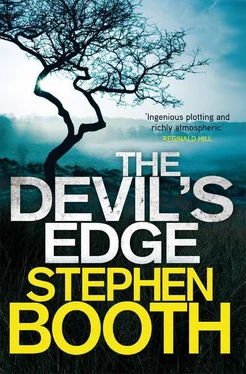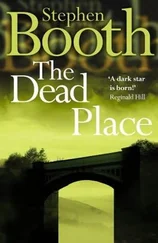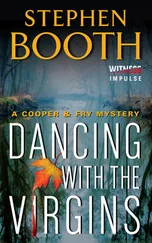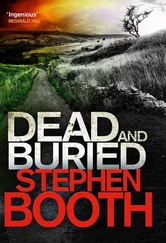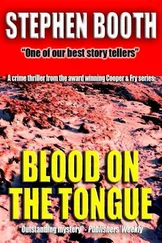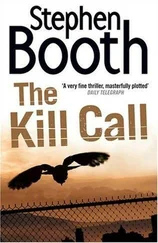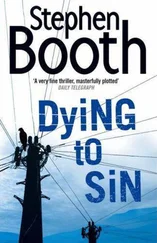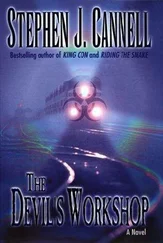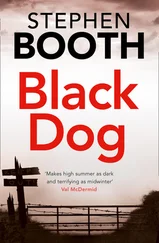Stephen Booth - The Devil’s Edge
Здесь есть возможность читать онлайн «Stephen Booth - The Devil’s Edge» весь текст электронной книги совершенно бесплатно (целиком полную версию без сокращений). В некоторых случаях можно слушать аудио, скачать через торрент в формате fb2 и присутствует краткое содержание. Жанр: Полицейский детектив, на английском языке. Описание произведения, (предисловие) а так же отзывы посетителей доступны на портале библиотеки ЛибКат.
- Название:The Devil’s Edge
- Автор:
- Жанр:
- Год:неизвестен
- ISBN:нет данных
- Рейтинг книги:3 / 5. Голосов: 1
-
Избранное:Добавить в избранное
- Отзывы:
-
Ваша оценка:
- 60
- 1
- 2
- 3
- 4
- 5
The Devil’s Edge: краткое содержание, описание и аннотация
Предлагаем к чтению аннотацию, описание, краткое содержание или предисловие (зависит от того, что написал сам автор книги «The Devil’s Edge»). Если вы не нашли необходимую информацию о книге — напишите в комментариях, мы постараемся отыскать её.
The Devil’s Edge — читать онлайн бесплатно полную книгу (весь текст) целиком
Ниже представлен текст книги, разбитый по страницам. Система сохранения места последней прочитанной страницы, позволяет с удобством читать онлайн бесплатно книгу «The Devil’s Edge», без необходимости каждый раз заново искать на чём Вы остановились. Поставьте закладку, и сможете в любой момент перейти на страницу, на которой закончили чтение.
Интервал:
Закладка:
‘If we can pin down where everyone was and what they saw,’ he said, ‘we might get an angle on the route the attackers took. In and out. We’ve got the approximate times.’
‘They must have used a vehicle, surely,’ said Irvine.
‘If they did, it wasn’t on the Barrons’ property. The gates were closed, and they can only be opened from inside. There’s a lane running along the back here, though. It borders on part of the Barrons’ property. It’s only a track really, but it would be possible to get a vehicle up there.’
‘Who else in the village knew the Barrons?’ asked Irvine.
‘Uniforms are doing a trawl right now,’ said Murfin. ‘But my guess is that it’ll be a short list.’
‘What about this Barry Gamble? First on the scene, and all that. He has to come into the frame. Did he have a justification for being at Valley View?’
‘We’ll be talking to him again today, Luke,’ said Cooper.
Zoe Barron’s sister was on TV, being interviewed on behalf of the family. It was a routine that seemed to be demanded by the media after any personal tragedy.
‘She was a good mother, and a good wife. A very bright, loving woman. She was just in the wrong place at the wrong time. If she hadn’t disturbed those intruders, she would still be alive and with us today.’
‘Did she disturb them?’ said Cooper afterwards. ‘Is that the way it went?’
Murfin shrugged. ‘They came in across the decking and through the back door into the utility room.’
‘Yes, they came into the kitchen, where Zoe was already standing. They came to her, not the other way round. Something about that doesn’t feel right. And, as I asked before, what’s missing?’
‘A motive,’ said Murfin. ‘That’s what’s missing.’
‘Not to mention a clear idea of how they got in and out,’ added Irvine.
‘Right. All we have on that are the views of the loony tendency.’
There were certainly plenty of theories being floated around, if you followed the news sites on the internet, or simply did a Google search. After the attack on Valley View, some members of the public suggested the attackers must have abseiled down the rock face like the SAS. Others claimed they flew in by hang-glider launched from the edge. They didn’t bother to explain what had happened to the glider after it had landed in the Barrons’ garden.
The thought of Google made Cooper remember the biblical reference carved into the stone below Curbar Gap. He didn’t need to find someone with a Bible, of course. Google could come up with it for him in an instant.
He typed in Isaiah 1:18, and the quotation appeared:
Come now, and let us reason together, saith the LORD: though your sins be as scarlet, they shall be as white as snow; though they be red like crimson, they shall be as wool.
Wool? He was puzzling over the simile when DI Hitchens appeared by his desk.
‘Ben, you’ve got a new addition to your team,’ said Hitchens.
‘Oh?’
‘She’s just on her way up from reception.’
Cooper had been waiting for a new recruit ever since he’d become DS. He’d been starting to think that it would be a long wait. Cost-cutting meant that staff wouldn’t be replaced. ‘Natural wastage’ it was called. Nobody had said anything, but he knew how these things were done. Now it seemed that he’d been wrong.
Murfin grinned at him and tapped the side of his nose.
‘Gavin, do you know something?’ asked Cooper.
‘My lips are sealed.’
‘Mr Hitchens said she. Tell me it’s not Diane Fry come back to join us.’
Murfin’s laugh was more of a hysterical bark, too high-pitched and nervous for genuine amusement.
‘Oh God. Shoot me now if it is.’
Hitchens came back into the room.
‘Ben, this is your new colleague, DC Villiers.’
Cooper stood up, ready to hold out a hand in greeting. But he froze when he saw who was with Hitchens, walking calmly into the CID room with a smile. She was a bit older, leaner, more tanned than when he’d last seen her. And there was something else different, an air of confidence, a firm angle to her jaw and a self-assurance in the way she held her head. Her pale hair was pulled back from her face now. But he recognised her immediately.
‘Carol,’ he said.
‘Hello, Ben. It’s been a long time.’
9
Riddings had originally consisted of a dozen estate workers’ cottages, built by a local land-owning duke. Not the Duke of Devonshire, for once, but some rival aristocrat. The Duke of Rutland, perhaps. One of those people.
He had also built a tiny Wesleyan Reform chapel in the village, but there was no parish church. Several villages in this area were served by All Saints down the hill at Curbar, with its four-hundred-year-old poor box and Jacobean pulpit of black bog oak.
‘It seems strange,’ said Cooper. ‘Strange that we’re colleagues now. Last time we spoke, you were in the RAF Police.’
He’d taken Carol Villiers with him from Edendale to ease her into the inquiry, and they were parked up in the centre of the village on The Green, near the horse trough. It felt odd having her sitting next to him in the car. They had gone to school together, studied for their A levels at High Peak College at the same time, got a bit drunk with a group of mates in a local pub when they received their results. She had been a good friend, to whom he’d been sorry to say goodbye. Her parents lived in Tideswell, so it was a bit of a surprise that he hadn’t heard she was back in the area.
Seeing her earlier, Cooper’s mind had been thrown back several years, to the time when he’d seen another new DC coming towards him from the far end of the CID room. She had moved with a cool deliberateness, not meeting his eye, but glancing from side to side as she walked past the desks. He remembered thinking she was far too slim – slimmer than he’d grown up expecting women to be. His mother would have said she was sickening for something. Yet she had possessed a wiry look that suggested she was no weakling, no wilting violet. And so she had proved. That had been Diane Fry.
Carol Villiers was completely different. Isabel Cooper would have approved of her, for a start. She looked strong and fit, a woman who worked out in the gym regularly two or three times a week, and never found an excuse to miss. She had an outdoor colour too, not the deathly pallor he remembered when Fry first came. And her attitude was confident, but not belligerent. He felt no hostile vibes. He knew immediately that she didn’t need to be aggressive in her style. Her self-confidence went deeper.
‘Yes, I was an RAFP corporal,’ said Villiers. ‘Here. This is me as a Snowdrop.’
She showed him a photograph of her in her uniform, with black and red flashes, her corporal’s stripes on her sleeve, an MP badge, and a white top to her military cap. The cap was what gave the RAFP their nickname.
Cooper remembered her back in their school days as a lively, sports-obsessed girl who was also surprisingly ready to let her hair down. She had been into swimming and running half-marathons, had talked a lot about some female role models who had been prominent in athletics at the time, but whose names he had now forgotten.
And she hadn’t been called Villiers in those days either. She had been Carol Parry, the daughter of Stan and Vera Parry, who ran a bed and breakfast in Tideswell High Street.
‘I knew you were planning to join the police when you left the forces,’ said Cooper. ‘But I didn’t recognise the surname. Villiers? What happened?’
‘I got married,’ she said simply.
‘Oh.’
For a few moments they sat in silence, watching Riddings quietly coming to life. Opposite The Green there were still some of the original cottages standing near the chapel. But over the years, the older part of the village had been swamped by all those expensive detached houses, their paddocks and gardens carving out the lower slopes below Riddings Edge.
Читать дальшеИнтервал:
Закладка:
Похожие книги на «The Devil’s Edge»
Представляем Вашему вниманию похожие книги на «The Devil’s Edge» списком для выбора. Мы отобрали схожую по названию и смыслу литературу в надежде предоставить читателям больше вариантов отыскать новые, интересные, ещё непрочитанные произведения.
Обсуждение, отзывы о книге «The Devil’s Edge» и просто собственные мнения читателей. Оставьте ваши комментарии, напишите, что Вы думаете о произведении, его смысле или главных героях. Укажите что конкретно понравилось, а что нет, и почему Вы так считаете.
